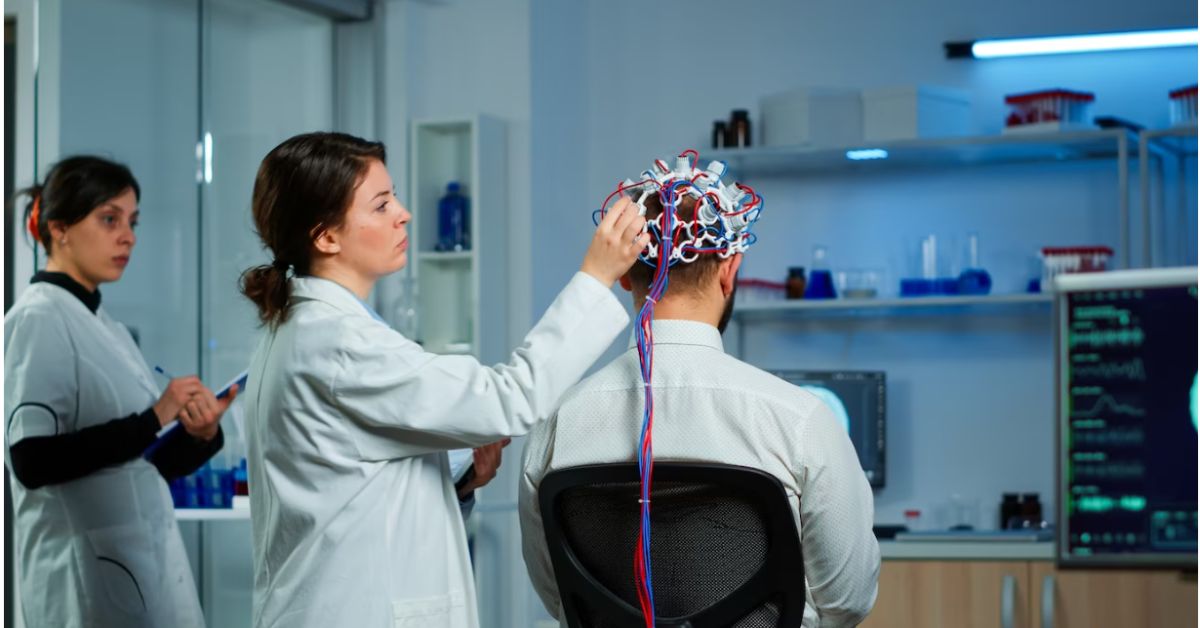Navigating the world of neurologist care can be overwhelming and confusing, especially if you or a loved one has recently received a diagnosis. But fear not! With the help of a skilled neurologist, it is possible to manage your condition and achieve recovery. In this blog post, we will explore neuro care & cure or everything you need to know about working with a neurologist – from their role in diagnosing neurological disorders to guiding patients through the recovery process. So whether you are seeking treatment for migraines, Parkinson’s disease, or any other neurological condition in Punjab, read on for some helpful tips and insights!
If you are searching for a reputable neurologist in Punjab, it’s important to do research on their qualifications and experience before making an appointment.
The Neurologist’s Role in Diagnosis
The neurologist plays a crucial role in the diagnosis of neurological conditions. They are specialists who have extensive knowledge and training in understanding the complexities of the nervous system, brain, spinal cord, and muscles.
When it comes to making a diagnosis, the neurologist will begin by conducting a comprehensive evaluation of your medical history and symptoms. This process may involve asking questions about your family’s medical history, previous illnesses or injuries you’ve experienced that could be relevant to your current condition.
Once they gather all necessary information from you, they may order diagnostic tests such as magnetic resonance imaging (MRI), computerized tomography (CT) scans or electroencephalograms (EEG). These tests help them to confirm their initial diagnosis or rule out other potential causes for your symptoms.
After gathering all this information and completing an accurate diagnosis, the neurologist will work with you on creating an appropriate treatment plan tailored specifically for your condition. The goal is always to improve quality of life by addressing issues like pain management or slowing down disease progression.
Having access to expert care from a qualified neurologist can make all the difference when dealing with complex neurological conditions. By working together closely during every stage of treatment- from diagnosis through recovery – patients can increase their chances for long-term success while managing their overall health effectively.
So take charge of your health today by seeking out professional medical advice from a qualified neurologist in Punjab at Amar Hospital.
The Neurologist’s Role in Recovery
After receiving a diagnosis, the next step is typically recovery. This is where the neurologist’s role becomes crucial. They work with patients to create a plan of action that will help them regain their health and continue living their lives.
The first step in recovery is to determine the underlying cause of the problem. Neurologists use various diagnostic techniques to identify any issues within the nervous system that may be causing symptoms.
Once they have identified the issue, they can develop an appropriate treatment plan for each individual patient. This may include medication, therapy, or other interventions tailored to address specific symptoms and improve overall function.
Throughout this process, patients should expect ongoing communication with their neurologist as they monitor progress and adjust treatments as needed based on how well it works for them.
In addition to medical treatment plans, neurologists also play a significant role in providing emotional support during recovery. They understand how difficult it can be for patients struggling with neurological conditions such as Parkinson’s disease or epilepsy and offer resources including counseling services if necessary.
What to Expect During Your First Visit to the Neurologist
Your first visit to a neurologist may be nerve-wracking, but it is essential for proper diagnosis and treatment. During your initial consultation, the neurologist will ask about your symptoms, medical history and conduct a physical examination.
The doctor may also request additional tests such as blood work or imaging studies like MRI or CT scans. These tests will help provide more information about the cause of your symptoms and guide further treatment options.
It’s important to communicate openly with the neurologist during this meeting and answer all questions truthfully. Share any concerns that you have, so that the doctor can address them accordingly.
Once the diagnosis has been made, your neurologist will discuss potential treatments with you. This could include medication management, lifestyle changes or therapy options. It’s important to have realistic expectations for recovery time and understand that some conditions require ongoing care.
Remember that building a good relationship with your healthcare provider is crucial in managing neurological conditions effectively. Be sure to follow up regularly with appointments scheduled by your neurologist for optimal health outcomes.
How to Prepare for Your First Visit to the Neurologist
Preparing for your first visit to the neurologist can be nerve-wracking, but it is essential to ensure that you get the most out of your appointment. Here are a few tips to help you prepare for your initial consultation.
Firstly, make sure that you have all relevant medical records and any test results available. This includes MRI or CT scans, X-rays, and blood tests. Having these documents on hand can give the neurologist an in-depth understanding of your medical history and aid them in making an accurate diagnosis.
It’s also important to write down any symptoms or concerns you may have before going into the appointment. Making a list will ensure that everything is covered during the consultation and prevent forgetting anything important due to nerves.
Another key aspect of preparation involves researching potential causes for your symptoms. While self-diagnosis isn’t recommended, having some knowledge about possible conditions linked with specific symptoms can help frame discussions with your neurologist.
Conclusion
Navigating neurologist care can be a daunting task. However, having a clear understanding of the role of the neurologist in diagnosis and recovery can make the process less overwhelming. Remember to prepare for your first visit by gathering necessary information and bringing someone with you for support if needed. Remember that early detection and prompt treatment is crucial in managing neurological conditions.


